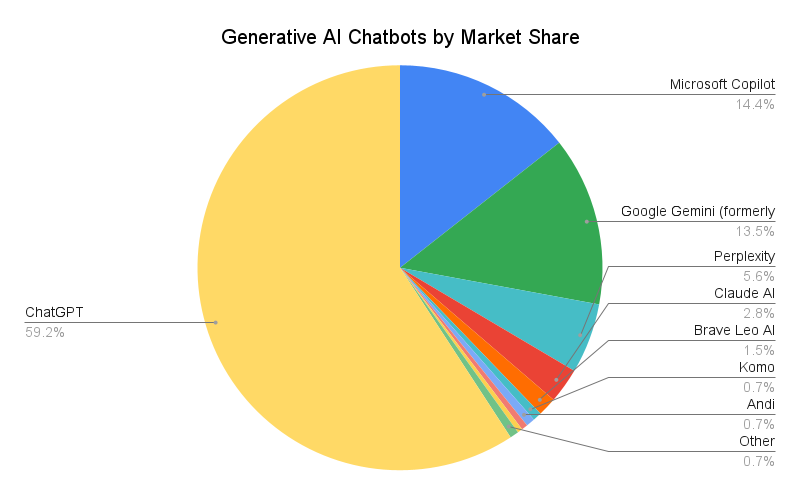Big companies don’t miss opportunities—they ignore them, until they can't. Why? Because going after those opportunities could threaten the business models they’re built on.
In 1998, Yahoo had the opportunity to buy Google on two occasions, when Google's founders offered to sell the company to Yahoo for $1 million, but Yahoo declined. Yahoo did not buy Google in 1998 because they underestimated the potential of Google's search technology. At the time, Yahoo was focused on its directory model and did not fully recognize the value of algorithmic search, which Google pioneered with PageRank. This decision, combined with Yahoo's overall lack of innovation and strategic vision, contributed to its decline as Google rose to dominance in search and beyond.
Yet, how often do we hear VCs dismiss startups with, “Your Bigtech competitor could just build this in seconds”? It’s one of the most misguided statements an entrepreneur can hear. Sure, incumbents have the resources, talent, and infrastructure to develop almost any product. But here’s why that doesn’t matter:
1. Horizontal Focus: Big companies like Google operate on horizontal markets and broad-scale solutions. They’re not structured to create hyper-specialized features or deeply focused products tailored to niche needs. Startups thrive by going deep where giants stay broad.
2. Lack of Focus: For an incumbent, the opportunity might exist, but it’s rarely a priority. Their energy is tied up protecting their core business—incremental improvements, not disruptive innovations, keep their cash cows alive.
3. A Company Is More Than a Product: Success isn’t just about building software. Go-to-market (GTM) strategy, customer success (CS), and customer experience (CX) are what differentiate startups. Startups don’t just create tools; they solve problems, foster relationships, and create user experiences that incumbents struggle to replicate.
And, perhaps most importantly, dismissing startups on the basis that some other incumbent can build reflects a fundamental misunderstanding of how great products are made. They’re made by great people through heroic efforts. Every successful startup overcomes hundreds of real obstacles—technical, operational, and market-driven—that incumbents either underestimate or aren’t willing to face. This process isn’t about resources; it’s about resilience, focus, and execution.
Following this logic, any relatively big company could build any product. Why, then, are VCs even in business? If success were purely about who could build something fastest, there’d be no need for venture capitalists at all. Their very existence relies on the fact that ideas, execution, and focus matter far more than sheer resources.
Take OpenAI and Google as an example. Google had every advantage: data, infrastructure, talent, and time. They even developed groundbreaking generative AI models behind closed doors. But they didn’t push forward publicly. Why? Because generative AI, like ChatGPT, could challenge their search empire—the cash cow bringing in billions. Google played it safe. OpenAI didn’t.
Google used AI to augment existing search services (sustained), while ChatGPT created the idea of natural language models as search vehicles (disruptive, as it changes the underlying ad models used by search engines right now).
Google monetizes their service by directing users to certain promoted pages, it is not strongly incentivized to round up information in a ChatGPT like format because that format eliminates ad clicks.
OpenAI had nothing to lose. They went all-in, taking risks Google couldn’t afford. They launched ChatGPT, ignited the generative AI revolution, and suddenly, the market was theirs. Now, Google is scrambling to catch up, defending territory they could have owned from the start.
OpenAI has a 59.2% market share in the Ai Chatbox category, while Google's Gemini has a 13.5% market share. OpenAI didn’t just challenge Google; they redefined the AI landscape before Google could even respond.
This isn’t just about tech. It’s a universal playbook: startups thrive in the spaces where incumbents hesitate.
Whether it’s Netflix versus Blockbuster, Tesla versus legacy automakers, or OpenAI versus Google, the story is the same. Netflix didn’t just disrupt Blockbuster; they made it impossible for them to recover.
The truth is, it’s not just about building something. It’s about owning it. Startups innovate and grow in spaces that big companies overlook or undervalue, and by the time incumbents notice, it’s often too late.
Big tech companies are focused on the business of today, not the business of tomorrow. Their priorities are tied to maintaining their current cash flows, not innovating for the future.
They are terrible at pivoting, which is essential for innovation. They struggle to change direction quickly, bogged down by bureaucracy and internal resistance.
In big tech, people may not always have the right incentives or mindset to push the boundaries of innovation.
And unlike startups, where the pace is often driven by urgency and passion, big companies often follow rigid work structures that stifle quick, entrepreneurial action.
Do you remember products like Google+ or Google Allo? These weren’t minor experiments—they had massive teams, incredible funding, and all the resources anyone could dream of. Yet they failed spectacularly, despite their initial growth and innovative features. Why? Because everyone struggles to build a great product and find market fit, no matter how much money or talent they have.
The lesson is clear: don’t listen to the noise. Ignore the dismissive VC who says, “Meh, Google could build it.” They could—but they won’t. And even if they did, they’d be playing catch-up in a space you’ve already claimed.
The startup I’m working on now, Inkjin, is a prime example of how startups can innovate in spaces that big tech has overlooked. We're disrupting the tattoo industry by using AR to help users visualize designs before they commit to getting inked.
Go after the opportunities big companies are too scared or too comfortable to chase. The biggest opportunities lie in their blind spots.
Find the spaces they overlook and make sure you own them before they come around!








Great reminder